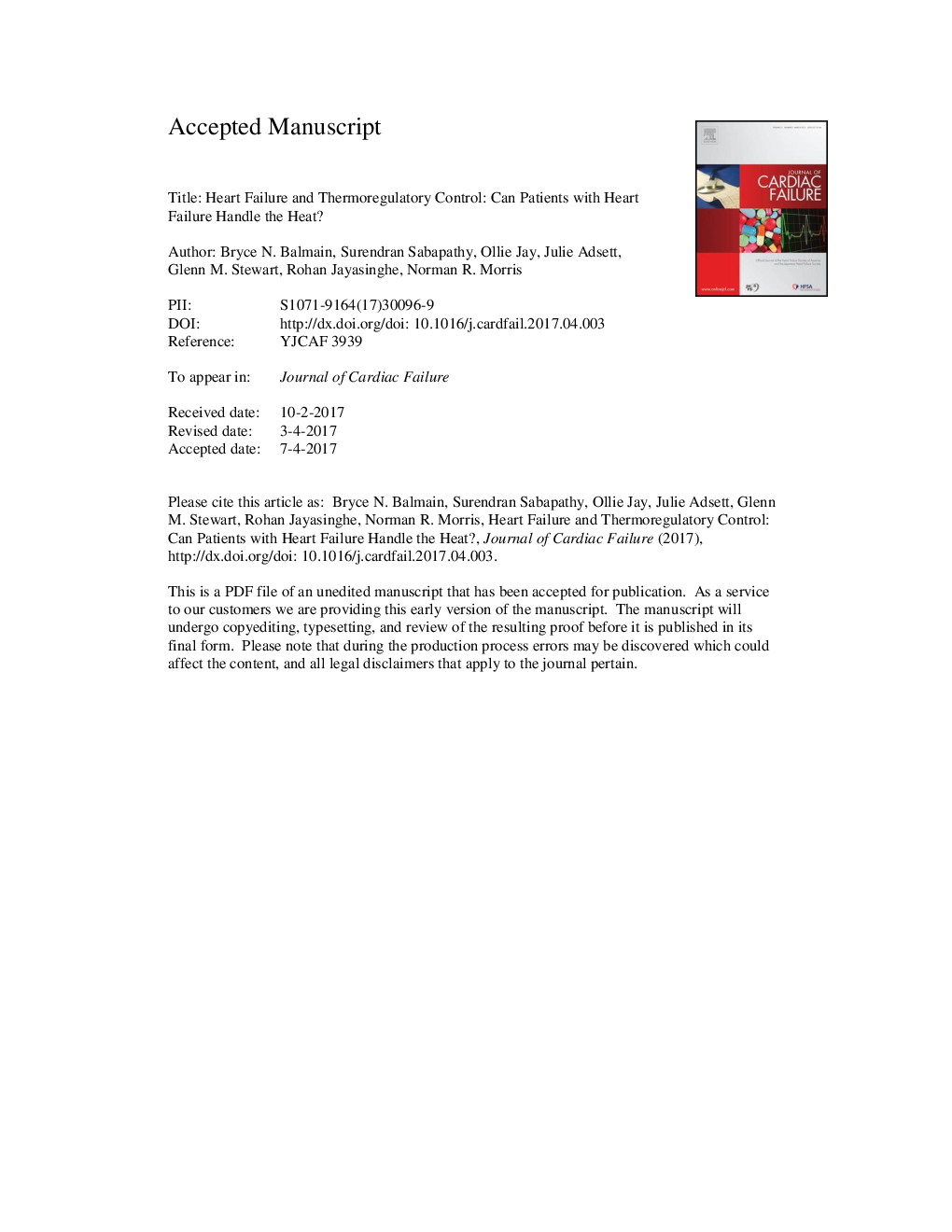| Article ID | Journal | Published Year | Pages | File Type |
|---|---|---|---|---|
| 5614476 | Journal of Cardiac Failure | 2017 | 25 Pages |
Abstract
Upon heat exposure, the thermoregulatory system evokes reflex increases in sweating and skin blood flow responses to facilitate heat dissipation and maintain heat balance to prevent the continuing rise in core temperature. These heat dissipating responses are mediated primarily by autonomic and cardiovascular adjustments; which, if attenuated, may compromise thermoregulatory control. In patients with heart failure (HF), the neurohumoral and cardiovascular dysfunction that underpins this condition may potentially impair thermoregulatory responses and, consequently, place these patients at a greater risk of heat-related illness. The aim of this review is to describe thermoregulatory mechanisms and the factors that may increase the risk of heat-related illness in patients with HF. An understanding of the mechanisms responsible for impaired thermoregulatory control in HF patients is of particular importance, given the current and projected increase in frequency and intensity of heat waves, as well as the promotion of regular exercise as a therapeutic modality. Furthermore, novel therapeutic strategies that may improve thermoregulatory control in HF, and the clinical relevance of this work in this population will be discussed.
Keywords
Related Topics
Health Sciences
Medicine and Dentistry
Cardiology and Cardiovascular Medicine
Authors
Bryce N. BExSc (Hons), Surendran PhD, Ollie PhD, Julie BPhty (Hons), Glenn M. PhD, Rohan MBBS, PhD, Norman R. PhD,
